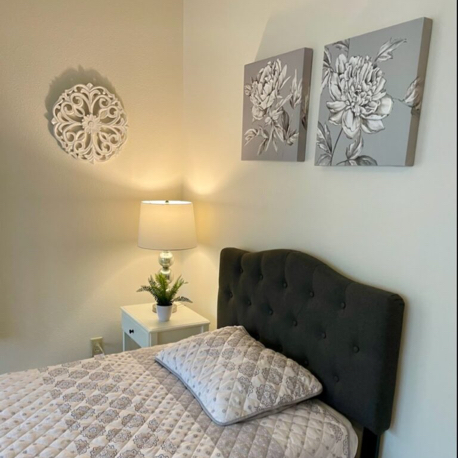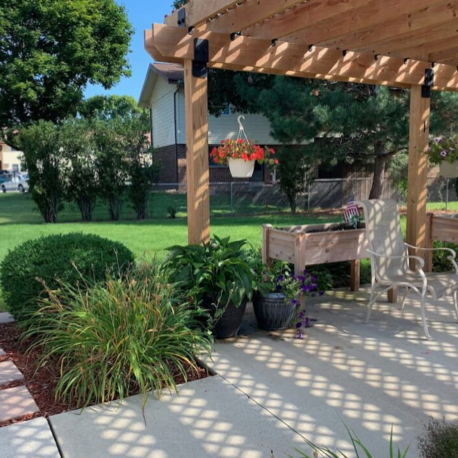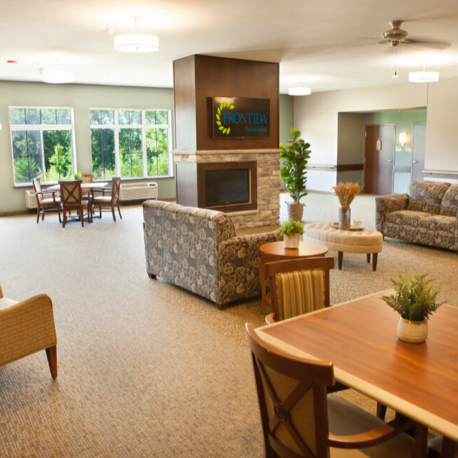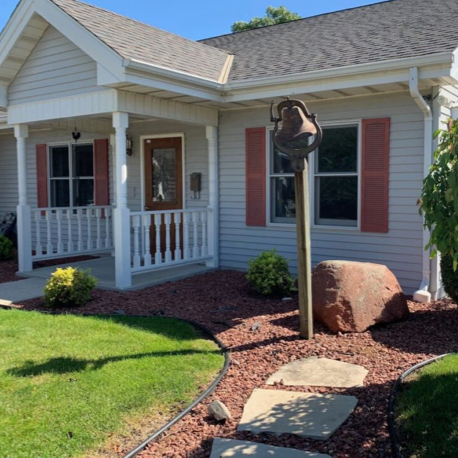Caring for a loved one with dementia can be a deeply rewarding yet challenging experience. One of the most critical aspects of caregiving is providing a safe and supportive environment that promotes all aspects of their well-being.
The progression of dementia impacts memory, judgment, and mobility, making unintentional and unexpected hazards more likely.
Whether you’re providing care at home or exploring specialized memory care at communities like Riverwood Senior Living, understanding how to create a safe, nurturing space is necessary. It starts with simplifying, modifying, and establishing routines.
Understanding Dementia’s Impact on Daily Living
Dementia is a complex condition that affects memory, behavior, and cognition, gradually impairing a senior’s ability to perform everyday tasks. Because of these challenges, certain spaces in a home may become riskier, and routines may become harder to maintain.
For example, individuals may forget to turn off the stove, have difficulty navigating stairs, or misidentify objects. Recognizing how dementia impacts your loved one’s day-to-day life is the first step to creating a secure environment.
Step 1: Assess the Home Environment
Before making changes, conduct a full home safety assessment. Your home safety checklist involves walking through the space to identify potential hazards, like uneven flooring or poor lighting. Keep these critical points in mind:
- Remove clutter: Clear pathways of unnecessary items, like loose rugs, electrical cords, or heavy furniture, that can cause tripping hazards
- Secure dangerous items: Lock away sharp objects, medications, cleaning supplies, & other household chemicals
- Improve lighting: Install brighter bulbs & confirm that every room has adequate lighting, including nightlights in the hall, to help prevent accidents
Take time to assess how easily your loved one can move through the home and identify areas where extra support is needed.
Step 2: Kitchen Safety Modifications
The kitchen often holds some of the most significant risks. However, with a few modifications, you can help make the space significantly safer. Start with this checklist:
- Appliance safety: Use stove knob covers or install an auto-shutoff device to prevent accidental use
- Label cabinets: Add clear labels to drawers & cupboards to help seniors locate items without confusion
- Limit access to hazardous tools: Keep knives, scissors, & other sharp tools in locked drawers
- Simplify the space: Keep countertops free of clutter, & store frequently used items within reach to avoid the need for step stools
Step 3: Bathroom Safety Enhancements
Bathrooms can pose challenges due to their slippery surfaces and hard fixtures. Consider these safety upgrades:
- Install grab bars: Place grab bars near the toilet & inside the shower or tub for extra support
- Non-slip mats & shoes: Add non-slip mats to the shower & bathroom floor & choose non-slip walking shoes & slippers
- Adjust water temperature: Lower the water heater’s maximum temperature to prevent accidental burns
- Simplify routines: Provide easy-to-identify products like body wash & shampoo in pump bottles to reduce confusion
By addressing these issues, you can prevent common accidents and make this space much safer for your loved one.
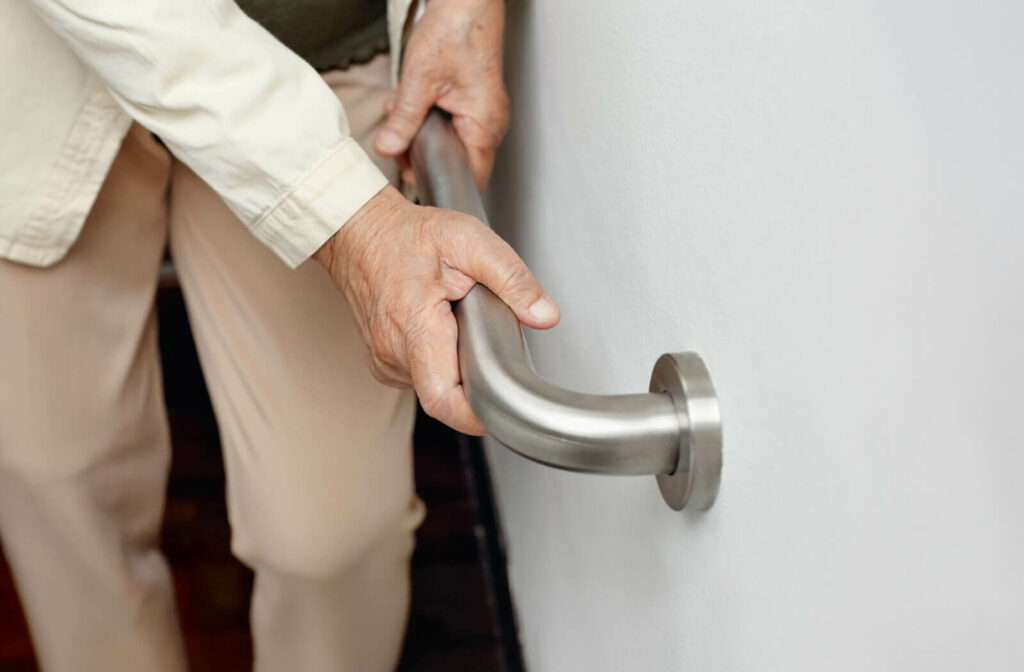
Step 4: Living Room & Bedroom Safety Considerations
The living room and bedroom are places of rest and relaxation. However, hazards like furniture placement and lighting still need attention:
- Furniture placement: Arrange furniture to create wide, unobstructed pathways for walking, especially where mobility aids are used
- Secure rugs: Use non-slip pads under rugs to prevent tripping & address corners or edges that curl up
- Install nightlights: Add nightlights in the bedroom, hallway, & connecting areas to guide safe navigation during nighttime walks to the bathroom
- Simplify décor: Avoid using mirrors or reflective surfaces in the bedroom, as they can sometimes confuse or distress individuals with dementia
A warm, calm, and clutter-free environment fosters feelings of comfort and security.
Step 5: The Importance of Routine & Familiarity
Seniors with dementia thrive on routine and familiarity. Changes in their environment or daily schedule can cause confusion and increase agitation.
Keep furniture, decorations, and frequently used items in consistent locations. Establish predictable routines for activities like meals, bathing, and bedtime. Familiarity helps provide a sense of control and stability, reducing anxiety for both the individual and their caregivers.
Step 6: Technology Usage for Safety
Advances in technology offer valuable tools to enhance safety for seniors with dementia. Here are a few innovations to consider:
- Door alarms: These can alert caregivers if a loved one attempts to wander outside so caregivers can act
- GPS trackers: Wearable technology, like GPS-enabled watches, helps locate individuals in case they become lost
- Smart home systems: Voice-controlled assistants can remind seniors to take medication, guide them through daily tasks, or control lights & appliances
- Medication dispensers: Automated pill dispensers help seniors receive the correct medications at the right time
Integrating technology into the home can bring peace of mind while promoting independence for seniors.
Step 7: Supporting Social Interaction & Emotional Well-being
While physical safety is vital, emotional well-being is equally important. Loneliness and isolation are common challenges for seniors with dementia, so encourage regular social interaction.
Activities like sharing meals, engaging in conversations, or enjoying music can provide a sense of connection and joy. A supportive community can have a profound impact on your loved one’s quality of life.
When to Look Into Memory Care
Despite your best efforts, there may come a time when creating a safe, manageable home environment becomes overwhelming.
Memory care settings are designed specifically to address the challenges of dementia. They provide individualized, around-the-clock care, helping seniors live safely while maintaining their dignity and independence.
Choosing memory care is a deeply personal decision, but it often provides both families and individuals with the peace of mind they deserve.
Next Steps for Your Loved One
Creating a safe living environment for seniors with dementia requires attention to detail, practical solutions, and compassion.
Whether you’re adapting a home or exploring memory care communities like Riverwood Senior Living, safeguarding your loved one’s well-being is an integral part of their care.
If you’re considering professional memory care support, our team at Riverwood Senior Living would be honored to help.
Visit us to learn more about how we create a caring, safe environment for every resident. Together, we can help your loved one receive the thoughtful care and support they need.


